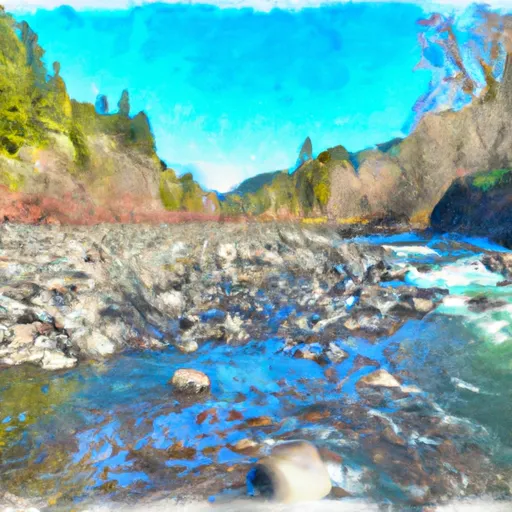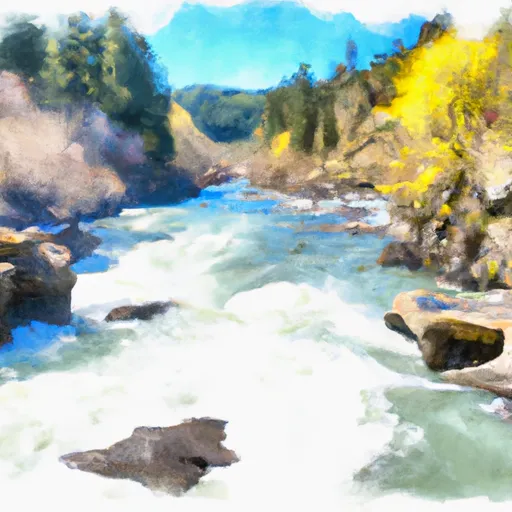2026-03-05T18:00:00-07:00
The National Weather Service in Denver has issued a Fire Weather Watch for wind and low relative humidity, which is in effect Thursday afternoon. * AFFECTED AREA...Fire Weather Zones 241, 245, 246 and 247. * TIMING...Thursday afternoon. * WINDS...South 15 to 25 mph with gusts up to 35 mph. * RELATIVE HUMIDITY...As low as 10 percent. * IMPACTS...Conditions will be favorable for rapid fire spread. Avoid outdoor burning and any activity that may produce a spark and start a wildfire.
Summary
Total streamflow across the
Sultan River
was last observed at
478
cfs, and is expected to yield approximately
948
acre-ft of water today; about 40%
of normal.
River levels are low and may signify a drought.
Average streamflow for this time of year is
1,190 cfs,
with recent peaks last observed
on
2025-12-11 when daily discharge volume was observed at
11,550 cfs.
Maximum discharge along the river is currently at the
Sultan River Below Powerplant Near Sultan
reporting a streamflow rate of 373 cfs.
However, the streamgauge with the highest stage along the river is the
Sultan River Below Diversion Dam Near Sultan
with a gauge stage of 25.71 ft.
This river is monitored from 2 different streamgauging stations along the Sultan River, the highest being situated at an altitude of 653 ft, the
Sultan River Below Diversion Dam Near Sultan.
15-Day Weather Outlook
River Details
| Last Updated | 2026-03-03 |
| Discharge Volume | 948 ACRE-FT |
| Streamflow |
478.0 cfs
-4.0 cfs (-0.83%) |
| Percent of Normal | 40.16% |
| Maximum |
11,550.0 cfs
2025-12-11 |
| Seasonal Avg | 1,190 cfs |
River Streamflow Levels
| Streamgauge | Streamflow | Gauge Stage | 24hr Change (%) | % Normal | Minimum (cfs) | Maximum (cfs) | Air Temp | Elevation |
|---|---|---|---|---|---|---|---|---|
|
Sultan River Below Diversion Dam Near Sultan
USGS 12137800 |
105 cfs | 25.71 ft | -0.94 | |||||
|
Sultan River Below Powerplant Near Sultan
USGS 12138160 |
373 cfs | 5.19 ft | -0.8 |
Seasonal Discharge Comparison
Maximum Streamflow Discharge
Streamflow Elevation Profile
The Sultan River is a river in Snohomish County in the U.S. state of Washington. It is a tributary of the Skykomish River, which it joins at the town of Sultan, Washington. The river is dammed in its upper third by Culmback Dam to form Spada Lake.
Both the Sultan River and the town of Sultan were named by prospectors for the chief of a Snohomish sub-tribe who lived on the Skykomish River in the 1870s. His name was Tsul-tad or Tseul-tud, which was anglicized by the miners into Sultan.The Sultan River's drainage basin was subjected to intense glaciation during the Pleistocene era. The river flows through a well-defined glacially carved trench. The upper South Fork Sultan River flows through a classic U-shaped valley cut by a glacier through Quartz diorite. The Sultan's river main tributaries—the North Fork, South Fork, Elk Creek, and Williamson Creek— flow through narrow valleys to converge in the lower Sultan basin where the valley floor is relatively broad. The Sultan River exits this basin by plunging abruptly into and through a narrow canyon.Pleistocene glaciers spread down the valleys of the Sultan River and its tributaries, merging in the lower basin. From there the ice pushed west through what is now the Pilchuck River valley. Today the two rivers are separated by the terminal moraine of an ice front that spread up the Pilchuck valley and impounded the Sultan River, creating a lake. This glacial lake eventually drained westward, creating a delta moraine. The postglacial Sultan River cut through the delta moraine, establishing its present course out of the lower Sultan basin.

 End Of Usfs Road 63 To Confluence With Troublesome Creek
End Of Usfs Road 63 To Confluence With Troublesome Creek
 Usfs Road 63 To Confluence With North Fork Skykomish River
Usfs Road 63 To Confluence With North Fork Skykomish River
 Headwaters At Outlet Of Blanca Lake To Usfs Road 63
Headwaters At Outlet Of Blanca Lake To Usfs Road 63
 Confluence With Troublesome Creek To Confluence With South Fork Skykomish River
Confluence With Troublesome Creek To Confluence With South Fork Skykomish River
 Confluence Of Tye And Foss Rivers To Gold Bar
Confluence Of Tye And Foss Rivers To Gold Bar